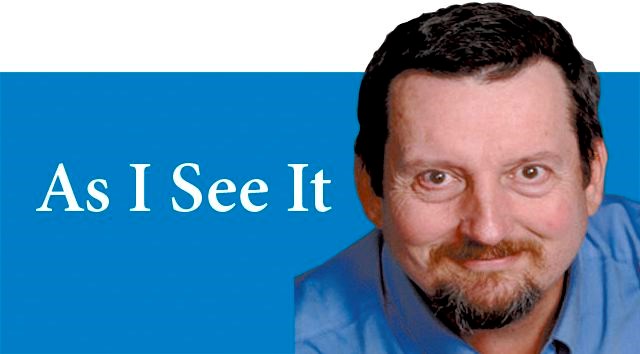Last week, I wrote about proportional representation as something I am glad the federal government isn't going to pursue. I had a few friendly comments, mostly to the effect people thought I would be in favour of such a system.
There are number of reasons why I think proportional representation is not the way to go.
The first is it will lead to the tyranny of the minority.
The party holding the balance of power has way more clout than they should.
Consider the government we now have in Victoria.
In order for the NDP to maintain their government, they need the support of either the Green Party or the B.C .Liberals.
The latter is not likely to happen so essentially it falls to the Green Party to support the government's agenda. But how much of the government's agenda is then dictated by the necessity of getting support from the Green Party?
Put another way, what would happen if the NDP decided they didn't want to waste money on a referendum next fall about proportional representation?
Would the Green Party side with the B.C. Liberals in a confidence motion which would send us back to the polls?
Perhaps more to the point, the legislation requires the government to support proportional representation but it is not clear what this means.
Could the Green Party bring down the government because they did not feel it properly supported the referendum?
The NDP have to find a compromise on all of its legislation which will satisfy the Green Party caucus.
As it stands, Andrew Weaver is a good man and is working in the best interests of the province as a whole. But what if it wasn't Andrew Weaver holding the balance of power?
With proportional representation, small voting blocs can have disproportionate power which defeats the whole reasoning behind proportional representation in the first place.
My second concern - who gets to decide on who will be the elected members of a party? Is it a list of potential candidates? How were they selected? By whom and it what fashion?
Presently, candidates are selected by a local riding association, which consists of concerned and active party members in an electoral district or region.
But if we go to a list of candidates, where would our local representative sit?
Imagine the NDP or B C. Liberals have a list of 84 candidates going into an election.
Will our local representatives even be on the list and if so where will they rank?
Would someone from Prince George be number 1 or number 84? Remember, someone has to be down at the bottom of the list and not likely to get elected.
Perhaps more to the point, how would they run?
Would the top ten on the list visit everybody in the province to win their votes or would we depend on proxies and the internet?
I ask this because my third concern is the size of the province and the size of ridings.
A voting system such as the Single Transferable Vote depends on having multiple MLAs elected from each riding.
This would mean blending together the 84 ridings in the province to give 14 or so large ridings, each of which would result in the election of seven MLAs.
Imagine what that would look like.
Two of the ridings would encompass Vancouver proper where the candidates could easily attend meetings from one end of town to the other.
On the other hand, two of the ridings would encompass pretty much all of the land mass of the province outside of the lower Mainland and Vancouver Island.
How could someone fairly represent the northern region in a riding stretching from the Yukon border to Williams Lake and from Haida Gwaii to the Alberta border?
Yes, there might be seven MLAs from such a region but how would you ensure they cover the whole territory and don't just cluster in Prince George or Terrace?
To have anything smaller though means we are essentially back to first-past-the-post as a form of representation. One member, one riding.
Finally, the various systems of proportional representations proposed don't address or solve the fundamental issue.
As long as we have a representational democracy, we will always have someone asserting their opinion over ours.
As long as we elect people to do the job of government on our behalf, there will always be times when we disagree.
For example, I disagree with going through the whole process of having another referendum on the issue of proportional representation even though I might support the government in power.
In bringing a referendum forward, the government isn't representing me.
Does this mean we should throw out the voting system or the government?
No.
Just that not everyone agrees about everything all of the time.
That is essence of a democracy.


